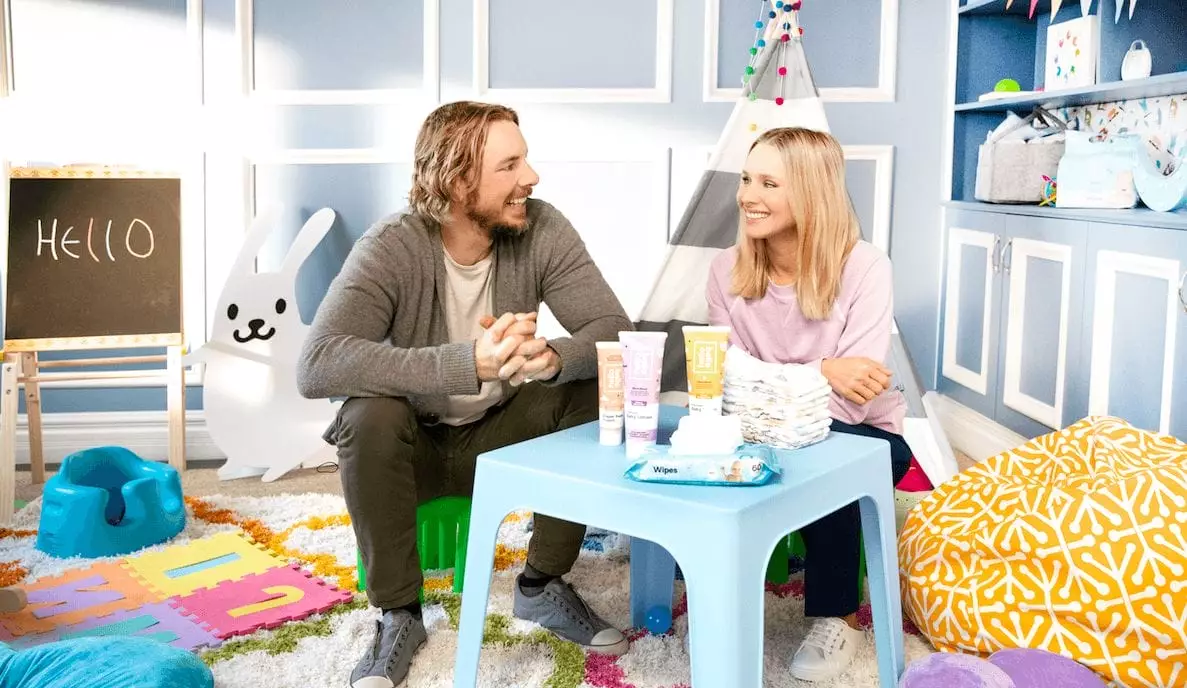In today’s parenting landscape, it is increasingly clear that each child is unique and that there is no universal playbook for milestones such as potty training. This notion was strongly emphasized by actress and mom Kristen Bell, who, during a candid conversation on her podcast “Momsplaining with Kristen Bell,” reflected on her contrasting experiences with her two children, Lincoln and Delta. The 5-year-old Delta is still navigating the waters of diaper-wearing, while her older brother Lincoln became fully potty trained at a remarkably early age of around 21 months. This stark difference in their developmental journeys raises important questions about the one-size-fits-all theory in child-rearing.
Bell’s experience serves as a poignant reminder that parenting cannot rely on a single proven method. She initially approached potty training Delta with the same casual attitude they applied with Lincoln — a simple suggestion to use the toilet, ideally leading to a smooth transition. However, what was effortless for Lincoln turned into a frustrating battle for Delta. This realization—born from both humor and a touch of parental desperation—illustrates how diverse developmental timelines can be among siblings, challenging the conventional wisdom that often pervades parenting advice.
Alma Gottlieb, a Professor Emerita of Anthropology, echoes this sentiment in her writings on the variability of potty training across different cultures and families. She highlights that while half of American children are successfully potty trained by the age of three, many children worldwide experience similar milestones much earlier. The availability of resources like disposable diapers can greatly influence these timelines, showcasing the role that environment and culture play in parenting practices.
Gottlieb calls for an open-minded approach in child-rearing, emphasizing that there isn’t a “one-size-fits-all” model suitable for every family. Similarly, Bell’s experiences underscore this perspective. The variance in accomplishments between siblings is not a personal failure of the parents but rather an expected part of child development. With each child, things like temperament, cognitive readiness, and social dynamics at play can create unique challenges.
Clinical psychologist Dr. Laura Markham elaborates on why certain children aren’t quick to embrace potty training. According to her, children at this age are often deeply engrossed in their play, creating an understanding gap regarding the bodily signals indicating the need for a bathroom visit. Markham recommends that parents—like Bell—should offer regular reminders to their children while encouraging them to listen to their bodies. For instance, setting a schedule for bathroom breaks before meals or other activities can guide children effectively. This approach fosters a supportive environment without introducing shame regarding accidents or comparisons with siblings.
Ultimately, the journey through potty training demands compassion and support from parents. Kristen Bell’s acknowledgment of the contrasting experiences of her children encourages a broader societal acceptance of individuality in child development milestones. It reminds parents not to measure their successes or failures against another child’s timeline, especially within their own family.
Creating a home environment that values patience and understanding rather than pressure can lead to more successful outcomes in potty training. Recognizing that diverse pathways exist for children to reach milestones reassures parents that they are not alone in facing these challenges. The laughter and humility expressed by Bell and her husband Dax Shepard serve to humanize the often overwhelming world of parenting.
In a culture that often rushes development and comparative measures, embracing the variation in each child’s journey—such as potty training—can significantly enhance the experience of parenthood. As evidenced by Kristen Bell’s narrative, recognizing the differences among siblings can empower parents to adopt personalized strategies that resonate best with their child’s needs, leading to more enriching experiences in the journey of growing up.

